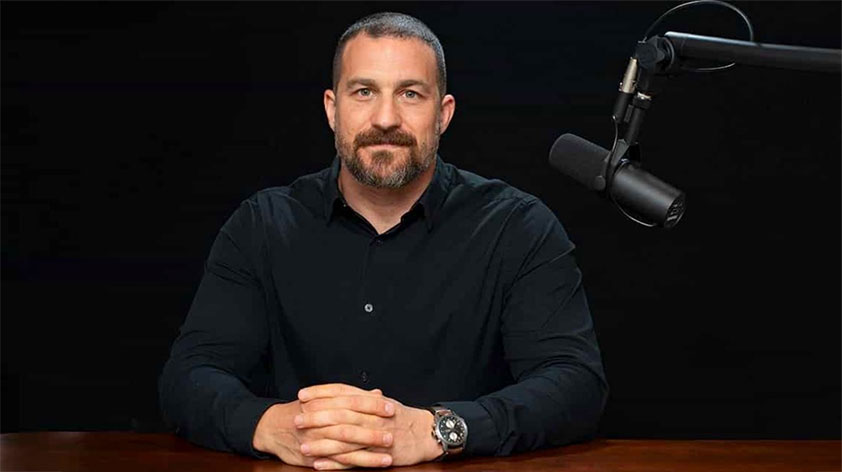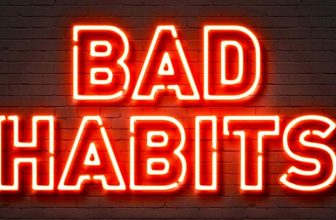
Dr Andrew Huberman is an American neuroscientist who has developed various contributions towards the field of brain development, brain function and neuroplasticity. His expert knowledge explains why working ‘with’ your nervous system is such a necessary function, and he discusses the scientific reasons behind those methods.
His researched methods of breathing techniques help people cope with trauma and anxiety. Keep reading on to learn how to activate strategies to counteract stress levels in Andrew Huberman: Top 5 Lessons We Can Learn from Him!
1. Breathwork Can Create Great Responses for Our Mind
While longer and more vigorous inhales will speed up your heart rate and make you more alert, longer exhales will make you less alert. These breathing methods can adapt our heart rates, yet a fluctuating heart rate throughout the day is almost normal. Learning to manage your breathing can control your heart rate, which links to your mind.
Various techniques that neuroscientists have found during their research are closely related to traditional yoga breathing methods. Although knowing these breathing techniques allows you to apply them in difficult or valuable circumstances, the practice of these breathing methods creates lasting benefits.
Despite certain people being unsure how to activate their nervous system, breathing techniques can also benefit numerous health conditions.
2. It’s Hard to Control the Mind by Using the Mind
In stressful times, people should look at their physical bodies. When children or adults experience moments of stress (and are sobbing), they often take a double breath to calm themselves.
Andrew Huberman says various breathing methods, such as the Wim Hof method, increase your heart rate and alert you. At first, a few of these breathing methods may make the user agitated. But these methods teach people to be calm while their body is under stress.
The repetitive breathing elevates the heart rate and secretes adrenaline. As a person exhales, it helps them to separate the body from the mind, and it teaches a person to fight the temptation to take stressful, shallow breaths.
3. Get Enough Sleep!
During rapid eye movement sleep, the brain is incredibly active, but the body acts almost as if paralyzed. Rapid eye movement (REM) sleep is vital, as it is essential for memory, emotional processing, and healthy brain development. Yet the delta phase is the most restorative, as our bodies tend to heal themselves as we experience deep, restful sleep.
In the sleep cycle, muscle growth occurs, and the resetting of the digestive system and metabolism tends to burn. Each stage of sleep is associated with a different mode of energy utilization, carbon dioxide offloading and other processes. If a person’s restful sleep is mostly ‘nose-breathing’, they can benefit from lowered blood pressure, improved brain function and increased blood flow.
4. What Does the Ultimate Morning Routine Look Like?
Andrew Huberman describes his ideal morning routine as getting up at about 5.30 am, having a glass of water upon rising and heading outside to receive bright light. The bright light (without directly looking at the sun) sets our circadian clock and helps us to activate the cortisol in the body. We need cortisol early in the morning to ‘kickstart’ our day. Sunlight helps to wake us up and we continue to form a routine of seeking sunlight.
The sunlight helps to set our melatonin levels when we activate the neurons in the eye. Light can also release signals in the body for all cells to work together as sunlight rays reach our sight. As we tune into our body clock, hair can grow more readily, the skin heals more quickly, and nails grow quicker. Hair, nails, and skin become triggered by light exposure to the eyes within the first 60 minutes of waking.
In the morning, Andrew Huberman delays his caffeine intake as he tries to filter out chemical influences in the body, which can lead to fatigue. Andrew schedules his coffee after he wakes for 90 minutes to 120 minutes later, avoiding a “caffeine crash” in the afternoon.
5. Healthier Routines Can Reduce Depression
Andrew Huberman discusses depression as a “state of mind”, and he recognizes that trauma and other challenges can produce “depressive states”. Changing behaviours that typically lead to depression can help the mind recover, as it can release the mind from harmful or negative emotional states.
Yet, when the body is in a panicked ‘state of mind,’ the body’s perceptions change as the pupils dilate because the whole nervous system becomes affected. A person’s perception of time may change in a panicked mood, as it leads to an anxiety-related time overestimation.
Breathing techniques can restabilize the body and mind. Our breathing directly connects to the brain and organs in the diaphragm. Unlike the heart, the diaphragm has muscles that can be voluntarily self-controlled, so breathing can become a powerful tool to regulate our ‘state of mind’.
Breathing helps shift a person’s mood more easily. Due to the neural positioning of the brain, it can help us move between unconscious to conscious control.
Andrew Huberman explains how to work with the body’s ‘natural systems’ and recognizes how we can live harmoniously with our minds. Educating ourselves on our body’s needs can relieve the stress in our lives. Dr Andrew Huberman aims to inform people of the relationship between their bodies and minds. While he believes breathing techniques can prevent unnecessary health conditions, his neuroscience background helps explain how breathing benefits health.
Although our nervous system is connected throughout our bodies to our brains, we do not need to fight its ‘natural mechanisms’ to help ourselves. What helps your mind during times of stress? Let us know in the comments below and join in the conversation on Facebook, Twitter & Instagram!









